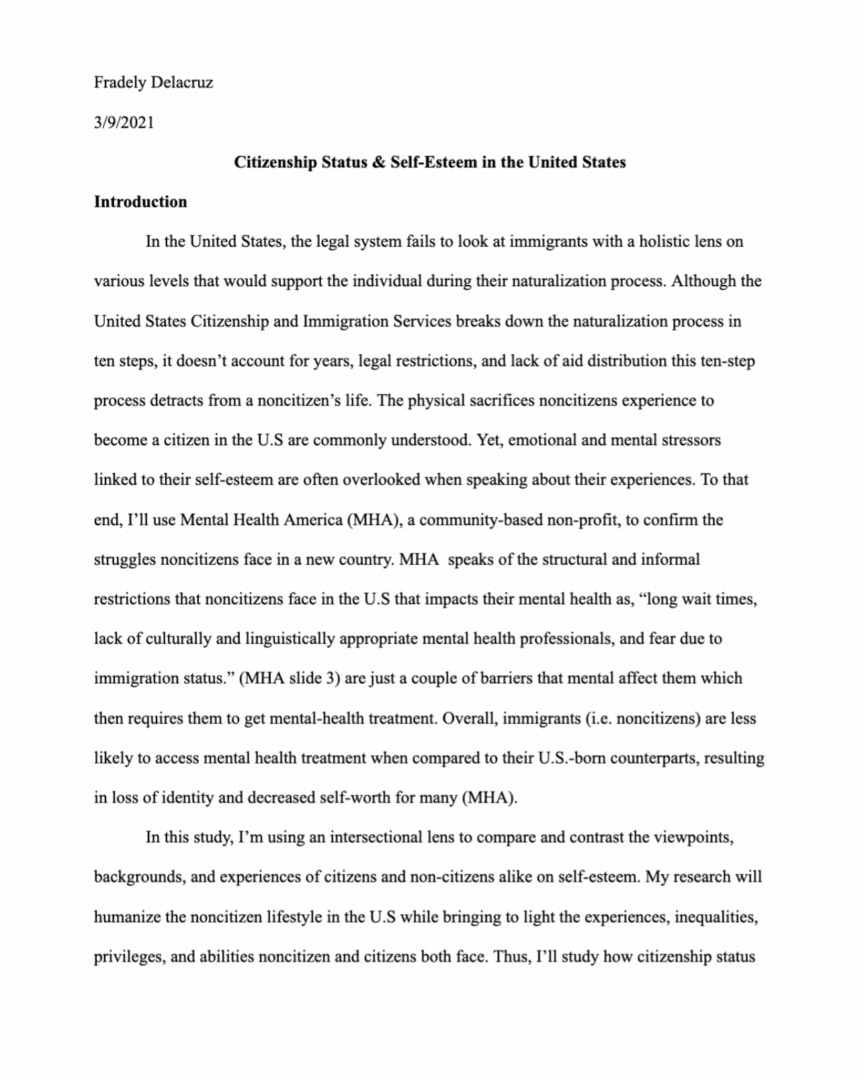Culturally Responsive Codebook Design for Identity & Belonging Research
Client:Academic Research Team
Project Type:Qualitative Data Analysis & Codebook Table
Industry Intersection:Social Science Research + Cultural Studies + Identity & Equity
Overview
Fradely Delacruz designed a comprehensive qualitative codebook for a social science study focused on cultural identity, citizenship, and belonging. The codebook operationalized complex constructs—like self-esteem, privilege, race/ethnicity, social assimilation, and generational identity—into actionable, theory-aligned codes for analysis across in-depth interviews. Each code definition was tied to scholarly frameworks and supported by participant quotes, creating a replicable and culturally responsive analytical tool.
Description
Fradely led code development, sub-code structure, and excerpt alignment to ensure that themes such as assimilation, discrimination, and self-perception were treated with cultural sensitivity. Drawing on frameworks by Rosenberg, Omi, and Winant, as well as Andriot and Owens, the coding approach integrated emotional nuance, sociological theory, and intersectional context. Her codebook allowed researchers to segment narratives from Afro-Latin participants and other BIPOC interviewees through a decolonial lens. The project employed a hybrid deductive-inductive coding strategy, supported by collaborative validation that centered on participants' perspectives and experiences. Coding was managed through Excel and NVivo to align intercoder reliability, with attention to culturally situated meanings across bilingual contexts. A visual code tree and infographic summary were developed to aid collaborative discussions.
Deliverables
Co-led a bilingual research project prioritizing BIPOC families with babies from 0-24 months. Co-built and managed a team of 5-8 individuals, integrating project milestones with culturally relevant outreach.
Codebook Design: Created a multi-theme codebook combining deductive theory-based categories and inductive themes from interviews
Sub-code & Quote Alignment: Structured layered sub-codes with direct quote tagging to ensure clarity and intercoder reliability
Theory Integration: Grounded all codes in both canonical (e.g., Rosenberg, Barth, Weber) and contemporary social science literature
Linguistic Inclusion: Translated constructs for Spanish-speaking collaborators and validated meaning across cultures
Participatory Verification: Integrated participant feedback (member-checking) to refine codes and reduce interpretation bias
Visual Outputs: Designed a visual code tree to guide collaborative analysis and team synthesis sessions
Clean Exportable Format: Delivered final version in Excel for ease of integration with NVivo or manual coding sheets
Key Outcomes
Operationalized abstract cultural constructs into usable, reliable codes
Bridged academic theory with real-world experiences of marginalized communities
Highlighted intersections of race, citizenship, identity, and mental health
Produced a replicable coding framework usable for cross-study comparison
Elevated research integrity and trustworthiness through transparent documentation and cultural alignment
Supported a follow-up study on Black Latinx youth identity by providing a reusable coding infrastructure
Created a visual roadmap of cultural codes for workshop and training use in academic research labs
Luziaries Value: Culture
This project reflects Luziaries’ commitment to centering cultural authenticity and academic integrity in research. Through precision coding and decolonial framing, Fradely translated theory into a research tool that amplifies marginalized voices and informs equity-based action.


